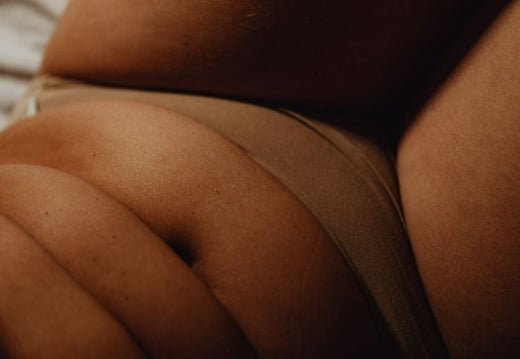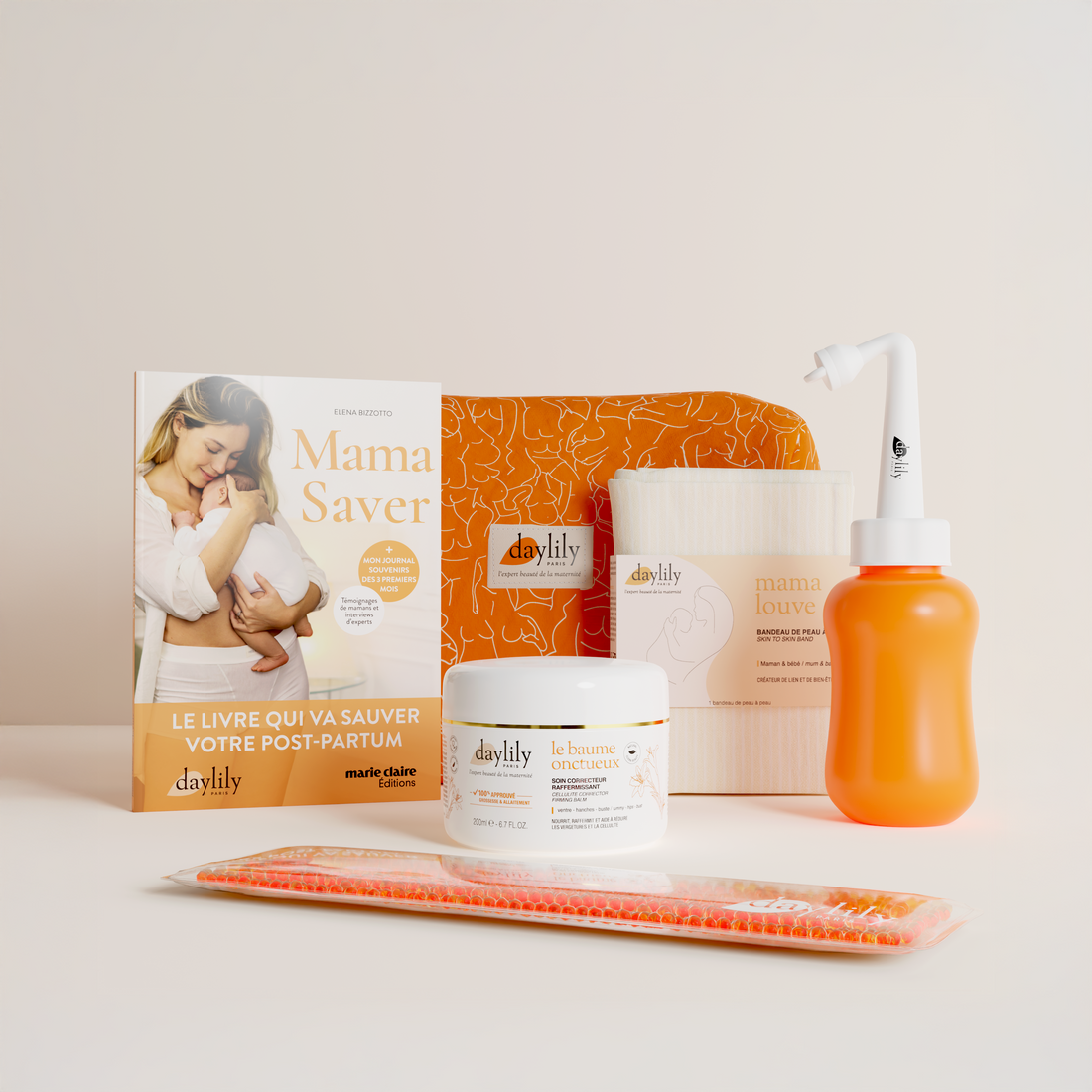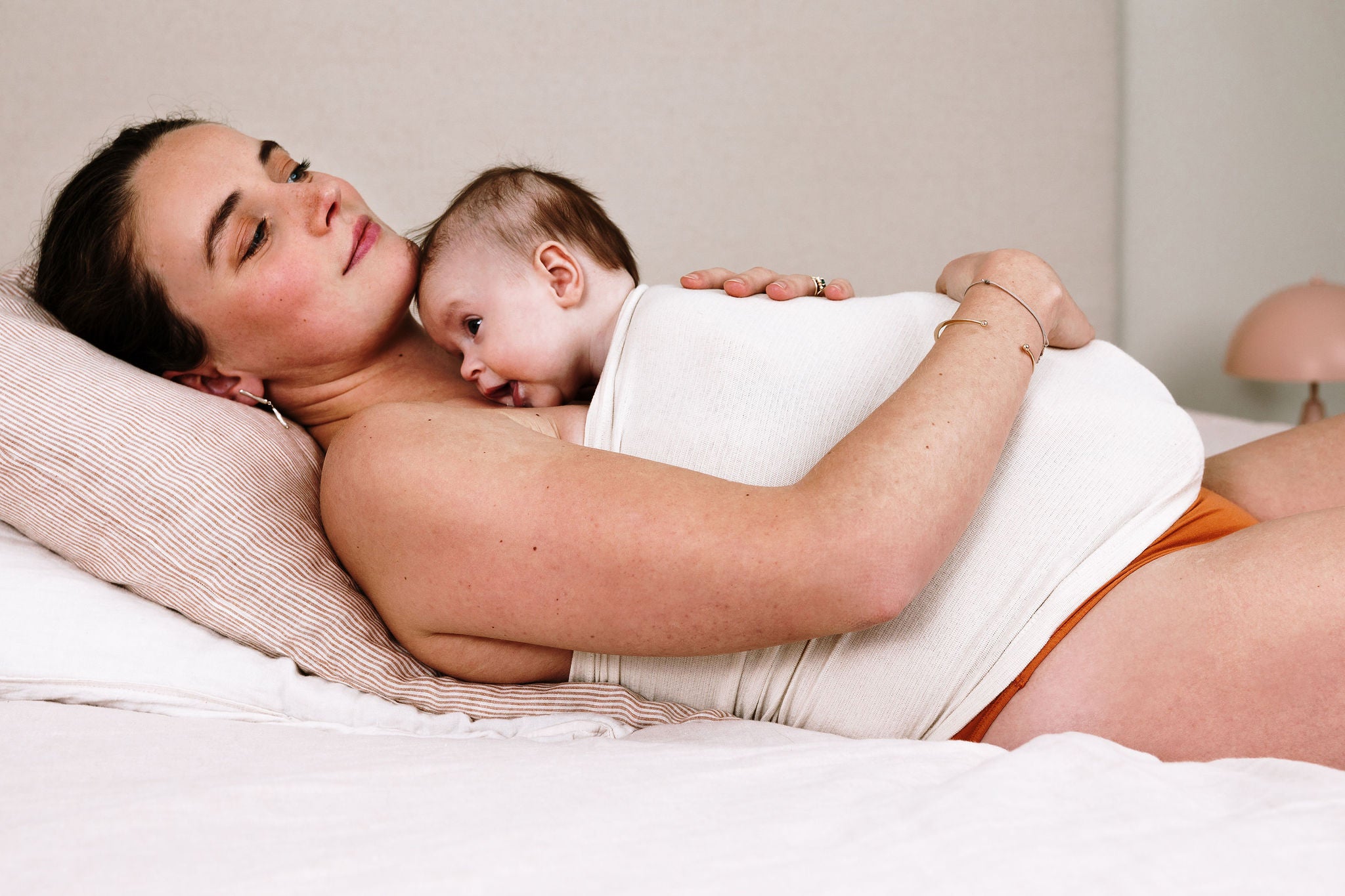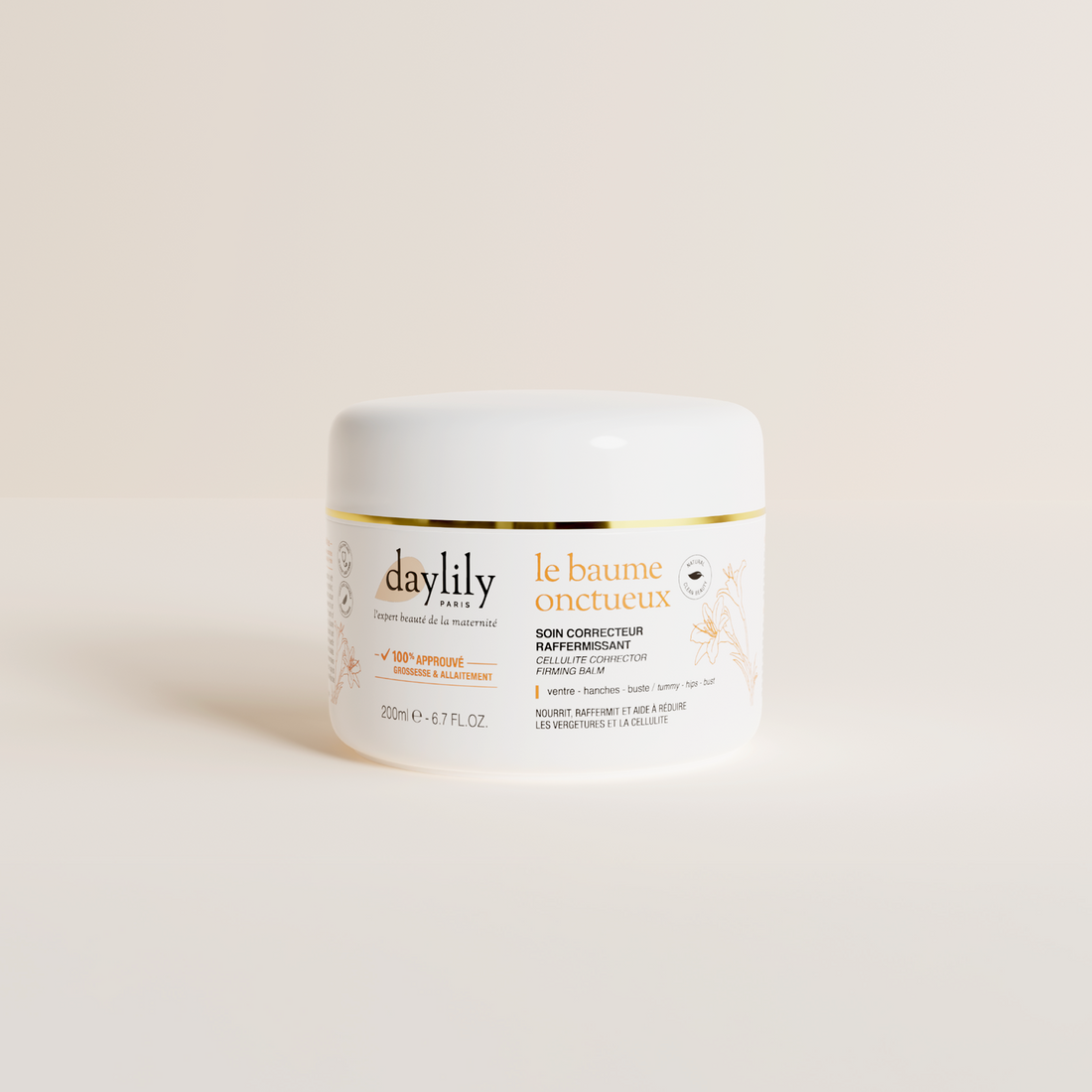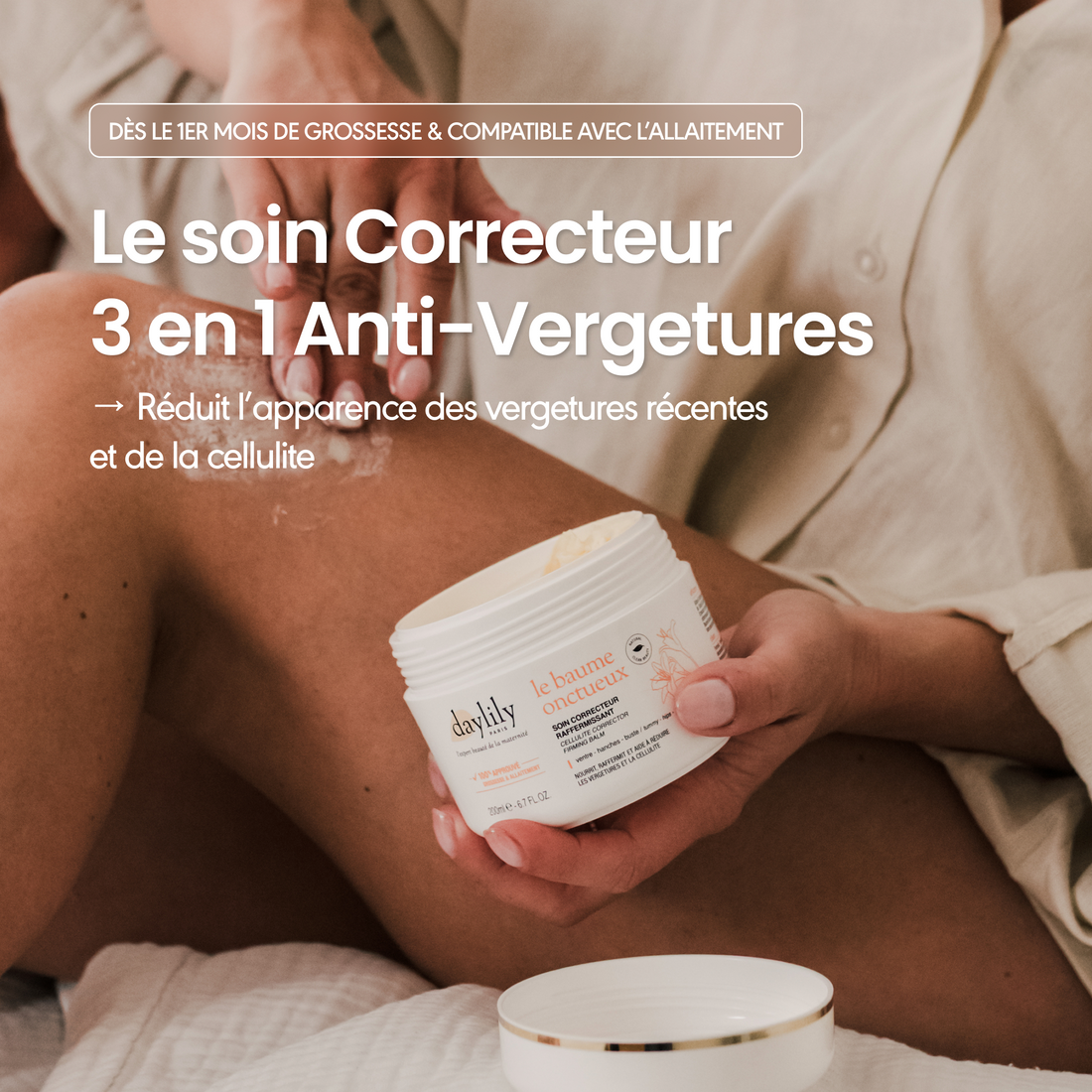The body in the postpartum
While pregnant women are generally well informed about pregnancy, they are often much less informed about the postpartum period. And the numbers speak for themselves:
Focus on lochia and trenches
Just after giving birth, significant blood loss, called lochia, appears. They are completely normal and part of the postpartum period for all women. The body will eliminate organic debris from pregnancy and in particular placenta residue. Lochia lasts on average between three and six weeks and also affects women who have given birth by cesarean section.
They are often associated with trenches, these contractions which appear in the postpartum period. The trenches, by causing a contraction of the uterus, will allow it to gradually return to its normal size. They will also help evacuate lochia. Good to know: the trenches are generally more marked as the childbirth progresses. If they can go almost unnoticed for a first baby, they are generally more intense for a second or third child. They will also be stronger when breastfeeding, because oxytocin, this hormone which facilitates the ejection of breast milk, will also cause uterine contractions.
If the pain is too severe, you can ask the midwives at the maternity ward for painkillers, or apply a hot water bottle to your lower abdomen to relieve it. You can also get Mama Cool, which is a strip of gel to use hot or cold depending on the pain to be relieved. For trenches, apply it hot directly to the bottom of the trench. Find it in Mama Saver - The postpartum kit.
Pain related to childbirth
Perhaps you have had a vaginal birth with an episiotomy or a few stitches, or a cesarean section... In any case, the scar can be painful for a while. Remember to clean and dry the scar area carefully, using, for example, an intimate area shower then a hair dryer set to lukewarm setting. Applying an ice pack, such as Mama Cool, to the weakened area is also a very good option to limit pain.

Pain related to the flow of milk
About three days after giving birth, milk comes in. You can expect to see your chest increase considerably in volume: as such it can become painful, with a feeling of heat that is not always pleasant. Do not hesitate to put cold packs on your breasts to reduce tension. We reassure you, everything should be back to normal in a few days! If you have chosen to breastfeed, the first feedings can be complicated and painful. Don't forget a breastfeeding balm in your maternity bag and make sure you are well looked after, for example, by contacting a lactation consultant from La Leche League. She will be able to give you tips for properly positioning your baby, having good lactation and getting breastfeeding on the right track.
If you didn't know it yet, we tell you: skin to skin with your child promotes the initiation of lactation and the secretion of relaxing hormones. This is a good reason to cuddle baby close to you! And guess what?? We thought about it within our Mama Saver kit; Mama Louve, the skin-to-skin headband, is one of our essentials :)
Take your time to find a toned body
It clearly shows how much time the body needs to regain its pre-pregnancy weight and muscle tone. You can start taking care of your body right after the birth of your baby with our post-birth care, such as Le Baume Onctueux which hydrates your skin, firms it and eliminates cellulite. Beyond its properties, its application is an opportunity to take a few minutes every day and discover your body which has just given birth. If you are breastfeeding, consider pampering yourself with post-pregnancy care compatible with breastfeeding.
Most women will need perineal rehabilitation : after 9 months of supporting the baby's weight, this muscle is generally weakened and will need to be remuscled to avoid the inconvenience linked to its lack of tone ( urinary or fecal leakage, or even descent organs in certain cases…). You can take stock with your gynecologist during the post-delivery visit, and start perineal rehabilitation no earlier than 6 weeks after birth. This period is often extended in the event of a cesarean section. It is after having completed the recommended number of sessions (generally 10) and regaining a well-muscled perineum that you can resume sporting activity.
Living well postpartum psychologically
We talked about the body in the postpartum period, let's not forget to talk about your feelings too. You have just had a baby, so you are obviously swimming in happiness! Yes, but. In reality, many young mothers feel a little overwhelmed by their new responsibilities and do not necessarily dare to talk about their discomfort or admit to suffering from depression after childbirth as the subject remains taboo. If you don't dare talk about your feelings to those around you, you can certainly find an Entre Mamans talking circle to speak openly with mothers who are also postpartum.
Baby blues and postnatal depression
The baby blues is a temporary depression that affects many mothers a few days after the baby's arrival. It is caused in particular by the drop in hormones, which occurs approximately three days after childbirth. This period of crying, irritability, feeling of not knowing how to take care of your child lasts a few days at most.
Unlike baby blues, which occurs just after birth and does not last, postpartum depression is long-term and can last several months after giving birth. There are certain risk factors, such as having experienced stressful events during pregnancy (separation, bereavement, isolation, etc.) or having a history of depression.
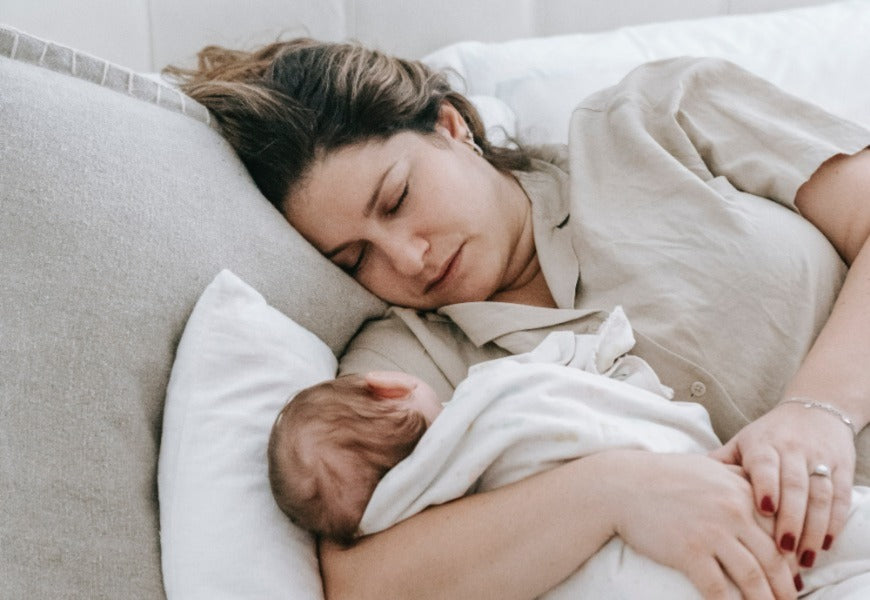
Postpartum depression is characterized by crying, mood disorders, exhaustion, insomnia... the young mother feels unable to take care of her baby, or does not feel the desire to do so.
You are not responsible for this situation and postpartum depression does not make you a bad mother! You should not hesitate to ask for help (from your partner, a midwife, a health professional, etc.) if these symptoms occur and if the vagueness in the soul and the dark thoughts are still present for several weeks after childbirth.
Solutions exist and specific support may be offered to help you overcome depression.
Young mother: organize yourself well on a daily basis
The arrival of a baby is a real upheaval, which will probably force you to review your organization at home and your daily priorities. Changes are coming! Lack of sleep, lack of time, don't hesitate to ask those around you to give you a helping hand or to look after your baby from time to time. For example, you can call on help at home (housekeeper, post-natal carer, doula, etc.) who will help you better experience your return home and get your bearings as young parents. One thing is certain, communication with your other half will be one of the keys to getting the most out of this intense postpartum period.
A little framework that will serve as a guide and allow you to distribute the mental and physical load fairly between you. You can think about it and start to define its contours from the last months of pregnancy. And if baby is already here, it's never too late to do it...
*Study the Pink Box

